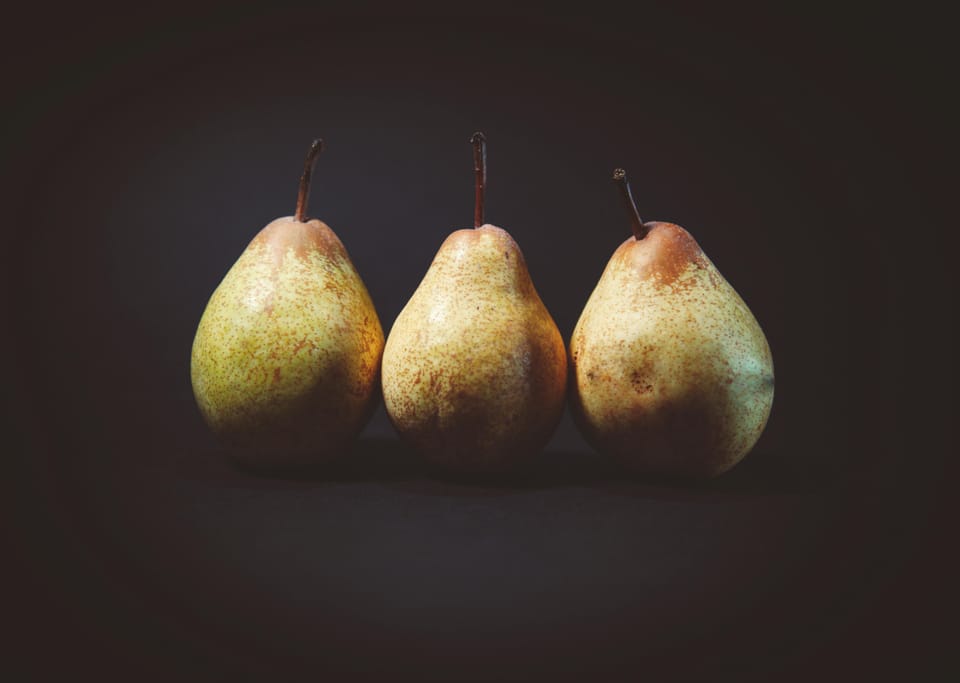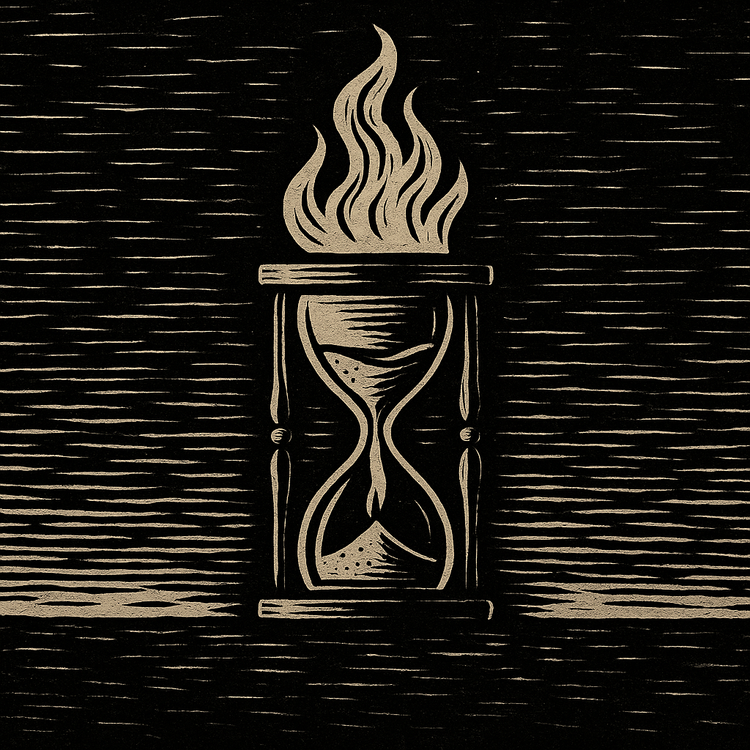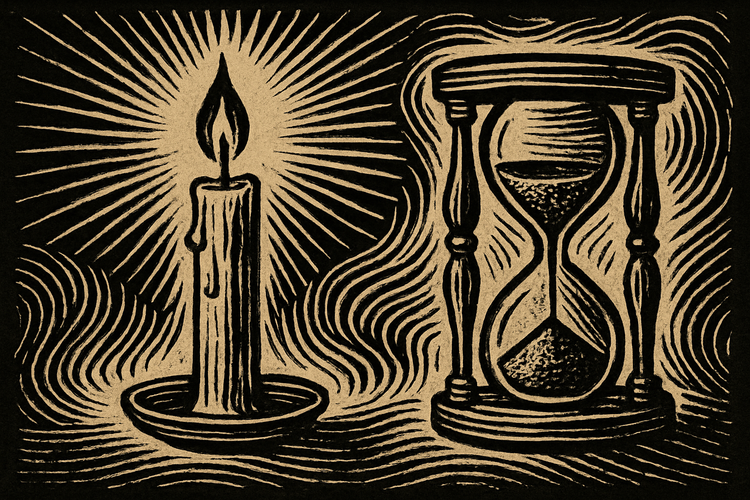The Good Place S1E3, "Tahani Al-Jamil"

Spoiler Warning: This reflection contains full spoilers for The Good Place, including retrospective insights and thematic allusions. It assumes familiarity with the entire series and is written from the perspective of a rewatch.
Eleanor Shellstrop has a problem. She suspects her elegant, effusive neighbor Tahani Al-Jamil of being a fraud—and possibly the author of the threatening note slipped under her door. It’s classic Eleanor: assume the worst, protect herself, stay one step ahead of the shame she hasn’t quite admitted yet. In an effort to stay ahead, she decides to try kindness, showing up at Tahani’s door with a basket of pears.
The gesture immediately collapses. Tahani graciously thanks Eleanor—then promptly tosses the pears into the trash, explaining cheerfully that pears are bad luck in Chinese culture. She vaguely blames it on Jianyu’s heritage, who she mistakenly implies is Chinese. It’s a quietly brutal moment. Eleanor was awkwardly, earnestly trying to connect, but instead, the exchange affirms her suspicion: Tahani’s charm might be purely performative.
This tension between sincerity and surface, between reputation and authentic relationships, forms the heart of the episode. Chidi Anagonye officially begins Eleanor’s ethics education—“Ethics 101,” focused on the moral philosophy of ancient Greece. Predictably, Eleanor misses the point entirely. “Who died and left Aristotle in charge of ethics?” she quips. “Plato!” Chidi exclaims. Their lessons repeatedly collide with Eleanor’s instinct for deflection. She doesn’t really want to be good; she just wants to escape the consequences of not being good.
A parallel narrative unfolds through Eleanor’s flashbacks, highlighting her cynicism. Her ex-boyfriend attempts an ethical boycott of a coffee shop, prompting Eleanor to mockingly list numerous other morally compromised companies and celebrities. Her message, both then and now, is clear: If everything and everyone is flawed, why bother trying?
Yet beneath her cynicism, something subtle shifts within Eleanor. Even as she continues to misunderstand Chidi’s teachings and distrust Tahani’s intentions, she slowly begins to take tentative steps toward genuine kindness. When Michael is finally honest with Chidi about why, exactly, he is pushing all of these potential hobbies, Chidi experiences an existential crisis about his own value as a teacher. Eleanor, uncharacteristically, offers genuine reassurance. It’s a clumsy kindness, but it’s real.
Later, Eleanor encounters Tahani alone and tearful, distraught over Jianyu’s persistent silence. The polished facade slips, revealing vulnerability beneath the elegance. Eleanor doesn’t mock or exploit this moment; she simply sits beside Tahani, offering comfort through quiet presence. By morning, the plant Tahani had gifted Eleanor—a plant which had wilted and been engulfed in flames in Eleanor’s neglect and vitriol, symbolizing their strained relationship—stands miraculously revived. It’s not magical realism, but metaphorical resonance. Even small acts of genuine kindness can bring back what seemed irrevocably lost.
Elsewhere, Janet undergoes a series of comedic personality reboots—Fun Fact Janet, Casual Janet, Bored Janet—each iteration more amusingly hollow in its artificiality. These comic moments sharpen the episode’s central question: How much of who we are is mere performance? When does the performance dissolve into something genuine?
The episode concludes with a crucial emotional shift. Jianyu—soon revealed as Jason Mendoza—slips Eleanor another note, asking to speak privately. Their conversation reframes everything. The threatening note wasn’t a warning but a desperate plea. Jason admits he’s not supposed to be in the Good Place either. Like Eleanor, he’s been trapped in an exhausting performance, pretending to be a moral exemplar when he’s anything but. It’s a moment of mutual recognition and relief, a quiet solidarity between two souls tired of pretending.
This revelation marks the episode’s emotional heart—not the ethics lessons or humorous quirks, but the stillness between two people embracing honesty. “The Good Place” continually asks if people can truly become better. This episode subtly shifts the inquiry: What happens when we stop pretending to be good? Eleanor provides an answer through action rather than theory—comforting Chidi, supporting Tahani. She doesn’t fix everything or radically transform herself. She simply shows up, honestly. In a world where entry is supposedly granted through proven goodness, perhaps such sincere presence is the rarest virtue of all.



Comments ()